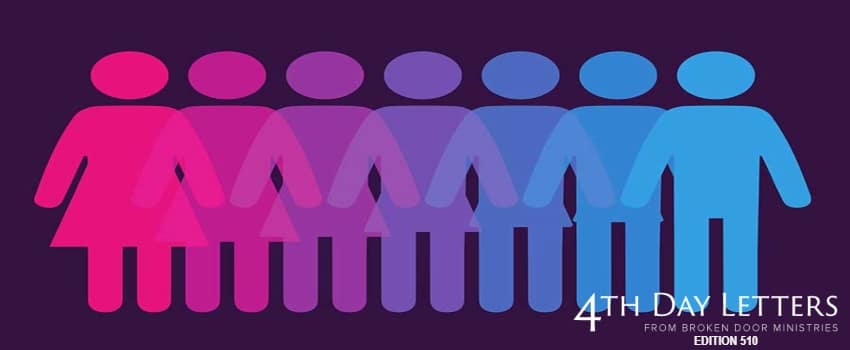
Identity Crisis
Podcast: Play in new window | Download
Subscribe: Apple Podcasts | RSS
There was once a time, not long ago, when the type of genitalia a person had determined their gender. In those days, restroom signs said male or female and most everyone, even children, knew which bathroom to use. How did we arrive at a day when this would suddenly become confusing? Is the world having an identity crisis? Find out…please read more.
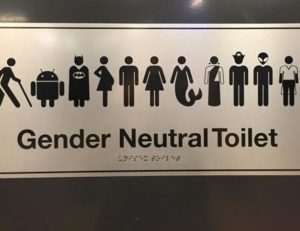 Please don’t draw the conclusion that I am insensitive about the issues and problems faced by people who struggle with gender identity. I assure you I am not. Gender identity is just the tip of the iceberg in our cultural identity crisis. We live in a time when people are searching for new and novel ways to express who they are
Please don’t draw the conclusion that I am insensitive about the issues and problems faced by people who struggle with gender identity. I assure you I am not. Gender identity is just the tip of the iceberg in our cultural identity crisis. We live in a time when people are searching for new and novel ways to express who they are
How do you describe who you are? Do you describe yourself by the gender that you were assigned at birth, by your self-selected gender identity, by your sexual orientation, by the color of your skin, by your nationality, by your marital status, by your religious affiliation, by your political affiliation, by your avocation or occupation, by some plural pronoun, or by some other descriptive information?
In many ways, the identity issue has reached a level of absurdity. Recently when I was reviewing my profile options on my hospital MyChart account, I noticed the following. There were 4 choices for gender assigned at birth, 6 choices for gender identity, 7 choices for sexual orientation and 10 choices to describe one’s marital status. Has the world gone crazy?
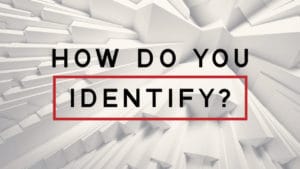 I must also admit that I don’t understand the cultural phenomena of choosing to identify yourself with a plural pronoun. Given the reality that God only created two genders, male and female, what is wrong with gender specific terms like he and she, or him and her? The use of we, they, and them, to describe one person perplexes me.
I must also admit that I don’t understand the cultural phenomena of choosing to identify yourself with a plural pronoun. Given the reality that God only created two genders, male and female, what is wrong with gender specific terms like he and she, or him and her? The use of we, they, and them, to describe one person perplexes me.
So, what’s behind this identity crisis? I believe that the number of creative terms people use to describe who they are grows exponentially the further people wander from God. When someone no longer finds their identity as a child of God, and a follower of Jesus Christ, they come up with more and more creative forms of self-identification.
If we are honest, we must admit that mankind has always struggled to answer the question, “Who am I.” Historically, people found their identity in what they did for a living. They would say, “I am a doctor” or “I am a teacher.” Today, people proudly proclaim who they are by their sexual orientation. They say, “I am gay”, or “I am bi,” or “I am straight.” People also describe themselves by the color of their skin or by their nationality. To be clear, every one of these descriptive terms falls woefully short. We are all more than any one attribute. We are complex people, and we are the sum of all the traits that make us who we are. No one facet of our personality adequately describes us.
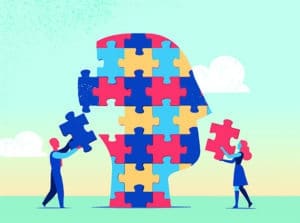 With this said, the quest to know ourselves is very important. St. Augustine once said that we have to know ourselves in order to know God. I read an article in Psychology Today that said there are several benefits to self-knowledge. They include some of the following:
With this said, the quest to know ourselves is very important. St. Augustine once said that we have to know ourselves in order to know God. I read an article in Psychology Today that said there are several benefits to self-knowledge. They include some of the following:
- You will be happier.
- You will experience less inner conflict.
- You will make better decisions in life.
- You will have more self-control.
- You will be better directed towards your values.
- You will be better positioned to resist social pressure.
- You will be more tolerant and understanding of others.
- You will have more vitality.
I recently had the opportunity to ask someone who was struggling with his sexual identity who he saw when he looked into the mirror. He said, “I see me.” That was the perfect answer because that’s who God sees too.
Luke 19:10 tells us, “For the Son of Man has come to seek and to save what was lost.” At times we are lost when it comes to knowing our true identity. In last week’s message, I said that we have a hole in our heart that only God can fill. The same can be said for our identity. We find our identity in God.
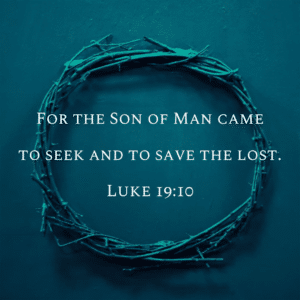 The last two lines of the famous poem “Invictus” written by William Ernest Henley in 1875, state:
The last two lines of the famous poem “Invictus” written by William Ernest Henley in 1875, state:
“I am the master of my fate,
I am the captain of my soul.”
This simply is not true. We are not now, nor have we ever been able to self-determine who we are. We had no choice to be born, and we do not know when we will die. We had no choice in what gender we would be. We are God’s creation. We are God’s children. We are made in His likeness and image.
Galatians 2:20 tells us, “yet I live, no longer I, but Christ lives in me; insofar as I now live in the flesh, I live by faith in the Son of God who has loved me and given himself up for me.”
Ephesians 2:10 gives us this, “For we are his handiwork, created in Christ Jesus for the good works that God has prepared in advance, that we should live in them.”
2 Corinthians 5:17 states, “So whoever is in Christ is a new creation: the old things have passed away; behold, new things have come.”
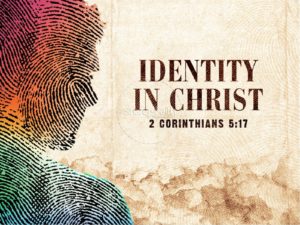 In conclusion, if you are someone who struggles to answer the question, “Who am I,” I encourage you to look to the Bible to find your answer. If you know someone who is struggling with these cultural identity issues, be respectful and kind and reassure them that they can find lasting peace only when they find their identity in God.
In conclusion, if you are someone who struggles to answer the question, “Who am I,” I encourage you to look to the Bible to find your answer. If you know someone who is struggling with these cultural identity issues, be respectful and kind and reassure them that they can find lasting peace only when they find their identity in God.
Heavenly Father, thank you for creating me as I am. I know that I have flaws, shortcomings, and weaknesses, but I also know that I am yours. Help me to find my identity in you and help me to live my life in a way that’s pleasing to you. Amen
AMDG
As always, I love to read your comments below as well as hear from you personally by clicking here.
- What Is The Church’s Role In Society? - July 21, 2024
- The Thorn Remained - July 14, 2024
- The Confounding Nature Of Freedom - July 7, 2024

Great 4th day letter. I think the reverse is also true. In order to know ( and accept) ourselves, we need to know (and surrender to) God.
Paul
Great point. Thanks for adding that thought to the discussion.
God bless!
Brian
Brian, as a counter point to the Invictus poem, here is a poem by Dietrich Bonhoeffer that’s in keeping with your message. It’s called “Who Am I.” This poem presents a poignant reminder that our lives are not our own and the self-autonomy we so desperately seek is not our destination. And you are right, Invictus gets it exactly wrong.
Who Am I?
by Dietrich Bonhoeffer
Who am I? They often tell me
I stepped from my cell’s confinement
Calmly, cheerfully, firmly,
Like a squire from his country-house.
Who am I? They often tell me
I used to speak to my warders
Freely and friendly and clearly,
As though it were mine to command.
Who am I? They also tell me
I bore the days of misfortune
Equally, smilingly, proudly,
Like one accustomed to win.
Am I then really all that which other men tell of?
Or am I only what I myself know of myself?
Restless and longing and sick, like a bird in a cage,
Struggling for breath, as though hands were compressing my throat,
Yearning for colors, for flowers, for the voices of birds,
Thirsting for words of kindness, for neighborliness,
Tossing in expectation of great events,
Powerlessly trembling for friends at an infinite distance,
Weary and empty at praying, at thinking, at making,
Faint, and ready to say farewell to it all?
Who am I? This or the other?
Am I one person today and tomorrow another?
Am I both at once? A hypocrite before others,
And before myself a contemptibly woebegone weakling?
Or is something within me still like a beaten army,
Fleeing in disorder from victory already achieved?
Who am I? They mock me, these lonely questions of mine.
Whoever I am, Thou knowest, 0 God, I am Thine!
Bob
Thank you for sharing this with everyone! Bonhoeffer had amazing insights.
Brian
I think it can also be said that we identify ourselves by our afflictions. I am an alcoholic. I am a substance abuser. I am an adult survivor of child abuse. But these acknowledgements lead toward healing in so much as we recognize our own afflictions. However, when I am with God, I am always his daughter. Should we not proclaim this? Why in todays society is this so hard to do? I think your letter this week describes perfectly why we do not. There is no worldly perceived value in being spiritual, in being a child of God.
Daria
Very well said. Thanks for sharing your thoughts here. May God’s blessings be with you.
Brian